Formación del profesorado, enseñanza y evaluación. Experiencias de estudiantes portugueses
| Issue | Vol. 6 Núm. 1 (2022): Ciencia y Educación - Monográfico Especial sobre Formación Docente |
| DOI | |
| Publicado | mar. 5, 2022 |
|
Estadísticas |
Resumen
Este artículo, procedente de un estudio más amplio, trata de comprender cómo los estudiantes que serán futuros profesores describen su experiencia en un curso de formación de profesores, concretamente en lo que respecta a las prácticas de enseñanza y evaluación. Los datos fueron recolectados a través de grupos focales con 30 estudiantes inscritos en un curso en el área de docencia. Los resultados apuntan a la prevalencia de prácticas docentes más tradicionales y a la falta de articulación entre la teoría y la práctica, aunque también hay aspectos que hacen referencia a diferentes grados de implicación de los alumnos en las actividades del aula y a diferentes dinámicas de interacción entre profesores y alumnos. Aunque los participantes destacan la importancia de la diversidad de los métodos de evaluación, y algunos admiten la relevancia de los portafolios y la retroalimentación oportuna y pertinente, sobresale el predominio de los exámenes y el trabajo en grupo.
Allen, J.M., & Wright, S.E. (2014). Integrating theory and practice in the pre-service teacher education practicum. Teachers and Teaching, 20(2), 136-151. https://doi.org/10.1080/13540602.2013.848568
Almeida, L., Fernandes, E., Soares, A., Vasconcelos, R., & Freitas, A. (2003). Envolvimento académico: Confronto de expectativas e comportamentos em universitários do 1.º ano. Revista Psicologia e Educação, 2(2), 57-70.
Almeida, L., & Cruz, J. (2010). Transição e adaptação académica: reflexões em torno dos alunos do 1.º ano da Universidade do Minho. In J. Silva et al. (orgs.), Ensino superior em mudança: tensões e possibilidades: actas do Congresso Ibérico (pp. 429-440). CIEd.
Barr, R., & Tagg, J. (1995). From teaching to learning – A new paradigm for undergraduate education. Change: The magazine of higher learning, 27(6), 12-26. https://doi.org/10.1080/00091383.1995.10544672
Bardin, L. (2013). Análise de Conteúdo. Edições 70.
Black, P., & D. Wiliam. (1998). Assessment and Classroom Learning. Assessment in Education. Principles, Policy & Practice, 5(1), 7-74. https://doi.org/10.1080/0969595980050102
Boud, D., & Falchikov, N. (2005). Redesigning assessment for learning beyond higher education. Higher Education 28(special issue), 34-41.
Boud, D., & Falchikov, N. (2006). Aligning assessment with long‐term learning. Assessment & evaluation in higher education, 31(4), 399-413. https://doi.org/10.1080/02602930600679050
Brown, G.T., & Remesal, A. (2012). Prospective teachers’ conceptions of assessment: A cross-cultural comparison. The Spanish Journal of Psychology, 15(1), 75-89. https://doi.org/10.5209/rev _SJOP.2012.v15.n1.37286
Brown, S. (2005). Assessment for Learning. Learning and Teaching in Higher Education, 1, 81-89. http://eprints.glos.ac.uk/id/eprint/3607
Bryman, A. (1988). Quantity and Quality in Social Research. Contemporary social research series, 18. Academic Division of Unwin Hyman, Ldt.
Carless, D. (2007). Learning‐oriented assessment: conceptual bases and practical implications. Innovations in Education and Teaching International, 44(1), 57-66. https://doi.org/10.1080/ 14703290601081332
Carless, D., Salter, D., Yang, M., & Lam, J. (2011). Developing sustainable feedback practices. Studies in higher education, 36(4), 395-407. https://doi.org/10.1080/03075071003642449
Evans, L. (2010). Professionals or technicians? Teacher preparation programs and occupational understandings. Teachers and Teaching, 16(2), 183-205. https://doi.org/10.1080/13540600903478458
Flores, M.A. (2006). Being a Novice Teacher in Two Different Settings: Struggles, Continuities, and Discontinuities. Teachers College Record, 108(10), 2021-2052. https://doi.org/10.1111/j.1467-9620.2006.00773.x
Flores, M.A. (2010). Algumas reflexões em torno da formação inicial de professores. Educação, 33(3), 182-188. Pontifícia Universidade Católica do Rio Grande do Sul Porto Alegre, Brasil.
Flores, M.A. (2011). Curriculum of initial teacher education in Portugal: New contexts, old problems. Journal of Education for Teaching, 37(4), 461-470. https://doi.org/10.1080/02607476.2011.611015
Flores, M.A. (2016). Teacher Education Curriculum. In J. Loughran & M. L. Hamilton (Eds.), International Handbook of Teacher Education (pp. 187-230). Springer Press.
Flores, M.A. (2017). Practice, theory, and research in initial teacher education: international perspectives. European Journal of Teacher Education, 40(3), 287-290. https://doi.org/10.1080/02619768.2017.1331518
Flores, M.A. (2019). Learning to be a teacher: mentoring, collaboration, and professional practice. European Journal of Teacher Education, 42(5), 535-538. https://doi.org/10.1080/02619768.2019.1680207
Flores, M.A., Pereira, D., Fernandes, E., & Coutinho, C. (2019). Conclusões e Implicações. In M. A. Flores (Eds.), Avaliação no Ensino Superior: Conceções e Práticas (pp. 229-254). De Facto Editores. Santo Tirso: Coleção Practicum – Ciências da Educação.
Freeman, M. (1995) Peer Assessment by Groups of Group Work. Assessment & Evaluation in Higher Education, 20(3), 289-300. https://doi.org/10.1080/0260293950200305
Gibbs, G. (1999). Using Assessment Strategically to Change the Way Students Learn. In S. Brown & A. Glasner (Eds.), Assessment Matters in Higher Education: Choosing and Using Diverse Approaches (pp. 41-53). Open University Press.
Hammerness, K., van Tartwijk, J., & Snoek, M. (2012). Teacher Preparation in the Netherlands: Shared Visions and Common Features. In L. Darling-Hammond & A. Lieberman (Eds.), Teacher Education around the World. Changing Policies and Practices (pp. 44-65). Routledge.
Hughes, G. (2011) Towards a personal best: a case for introducing ipsative assessment in higher education. Studies in Higher Education, 36(3), 353-367. https://doi.org/10.1080/03075079.2010.486859
Imig, D., Wiseman, D., & Imig, S. (2011). Teacher Education in the United States of America. Journal of Education for Teaching, 37(4), 399-408. https://doi.org/10.1080/0260747. 2011.611006
Koscielniak, C. (2014). A consideration of the changing focus on the sustainable development in higher education in Poland. Journal of Cleaner Production, 62, 114-119. https://doi.org/10.1016/j.jclepro.2013.06.006
Korthagen, F., Loughran, J., & Russell, T. (2006). Developing Fundamental Principles for Teacher Education Programs and Practices. Teaching and Teacher Education, 22, 1020-1041.
Krueger, R. & Casey, M. (2009). Focus groups: A practical guide for applied research (4th Ed.). Sage.
Li, L., & Gao, F. (2016). The effect of peer assessment on project performance of students at different learning levels. Assessment & Evaluation in Higher Education, 41(6), 885-900. https://doi.org/10.1080/02602938.2015.1048185Loughran, J., Keast, S., & Cooper, R. (2016). Pedagogical reasoning in teacher education. In International Handbook of Teacher Education, edited by J. Loughran and M. L. Hamilton (pp. 387-421). Springer Press.
López-Pastor, V., & Sicilia-Camacho, A. (2017). Formative and shared assessment in higher education. Lessons learned and challenges for the future. Assessment & Evaluation in Higher Education, 42(1), 77-97. https://doi.org/10.1080/02602938.2015.1083535
Lutovac, S., & Flores, M. (2021a). Conceptions of assessment in pre-service teachers’ narratives of students’ failure. Cambridge Journal of Education. https://doi.org/10.1080/0305764X.2021.1935736
Lutovac, S., & Assunção Flores, M. (2021b). ‘Those who fail should not be teachers’: Pre-service Teachers’ Understandings of Failure and Teacher Identity Development. Journal of Education for Teaching, 47(3), 379-394. https://doi.org/10.1080/02607476.2021.1891833Maschke, S., & Stecher, L. (2016). Why Become a Teacher? Considerations on the Initial Study Phase in Teacher Training. Obrazovanie i samorazvitie – Education and Self-Development, 11(3), 36-44.
Mayer, D., Allard, A., Bates, R., Dixon, M., Doecke, B., Kline, J., & Kostogriz, A. (2015). Studying the Effectiveness of Teacher Education: Final Report. Deakin University.
Mayer, D., Pecheone, R., & Merino, N. (2012). Rethinking Teacher Education in Australia: The Teacher Quality Reforms. In L. Darling-Hammond and A. Lieberman (Eds.), Teacher Education around the World. Changing Policies and Practices (pp. 110-129). Routledge.
Miller, A., Imrie, B., & Cox, K. (1998). Student Assessment in Higher Education: a handbook for assessing performance. Kogan Page.
Munthe, E., & Rogne, M. (2015). Research Based Teacher Education. Teaching and Teacher Education, 46, 17-24. https://doi.org/10.1016/j.tate. 2014.10.006.
Myers, C., & Myers, S. (2015). The use of learner-centered assessment practices in the United States: the influence of individual and institutional contexts. Studies in Higher Education, 40(10), 1904-1918. https://doi.org/10.1080/03075079.2014.914164
Nunes, S., & Garcia, A. (2010). Estudantes do ensino superior: as relações pessoais e interpessoais. Gestin, Revista da Escola Superior de Gestão, 195-203.
Orsmond, P., Merry, S., & Reiling, K. (2002). The Use of Exemplars and Formative Feedback When Using Student Derived Marking Criteria in Peer and Self-Assessment. Assessment & Evaluation in Higher Education, 2(4), 309-323. https://doi.org/10.1080/0260293022000001337
Panadero, E., Jonsson, A., & Strijbos, J.W. (2016). Scaffolding self-regulated learning through self-assessment and peer assessment: Guidelines for classroom implementation. In D. Laveault & L. Allal (Eds.), Assessment for learning: Meeting the challenge of implementation (pp. 311-326). Springer International.
Pope, N. (2001). An Examination of the Use of Peer Rating for Formative Assessment in the Context of the Theory of Consumption Values. Assessment & Evaluation in Higher Education, 26(3), 235-246. https://doi.org/10.1080/0260 2930120052396
Quivy, R., & Campenhoudt, L. (2003). Manual de Investigação em Ciências Sociais. Ediciones Morata.
Ramon-Casas, M., Nuño, N., Pons, F., & Cunillera, T. (2019). The different impact of a structured peer-assessment task in relation to university undergraduates’ initial writing skills. Assessment & Evaluation in Higher Education, 44(5), 653-663. https://doi.org/10.1080/02602938.2018.1525337
Remesal, A. (2011). Primary and secondary teachers’ conceptions of assessment: A qualitative study. Teaching and teacher education, 27(2), 472-482. https://doi.org/10.1016/j.tate.2010.09.017
Roldão, M.C. (2009). Estratégias de ensino. O saber e o agir do professor. Fundação Manuel Leão.
Rust, C. (2002). The impact of assessment on student learning: how can the research literature practically help to inform the development of departmental assessment strategies and learner-centred assessment practices? Active Learning in Higher Education, 3(2), 145-158. https://doi.org/10. 1177/1469787402003002004
Seco, G., Pereira, A., Alves, S., Filipe, L., & Duarte, A. (2011). Promoção de competências transversais no Ensino Superior. In Congreso Internacional Galego-Portugués de Psicopedagoxía, pp. 809-819.
Silverman, D. (2000). Doing qualitative research: a pratical handbook. Sage.
Sluijsmans, D. (2002). Establishing learning effects with integrated peer assessment tasks. The Higher Education Academy.
Tang, S. (2002). School-based learning in initial teacher education. Cardiff University.
Tang, S., Wong, A., & Cheng, M. (2012). Professional Learning in Initial Teacher Education: Vision in the Constructivist Conception of Teaching and Learning. Journal of Education for Teaching, 38(4), 435-451. https://doi.org/10.1080/02607476.2012.688549
Tang, S., Wong, A., & Cheng, M. (2016). Examining professional learning and the preparation of professionally competent teachers in initial teacher education. Teachers and Teaching, 22(1), 54-69. https://doi.org/10.1080/13540602.2015.1023028
Tang, S., Wong, A., Li, D., & Cheng, M. (2019). Examining student teachers’ engagement with the theory-practice link in initial teacher education. Journal of Education for Teaching, 45(2), 123-139. https://doi.org/10.1080/02607476.2018.1548167
Tee, D.D., & Ahmed, P.K. (2014). 360 degree feedback: An integrative framework for learning and assessment. Teaching in Higher Education, 19(6), 579-591. https://doi.org/10.1080/13562517.2014.901961
Thomas, D., Moore, R., Rundle, O., Emery, S., Greaves, R., te Riele, K., & Kowaluk, A. (2019). Elaborating a framework for communicating assessment aims in higher education. Assessment & Evaluation in Higher Education, 44(4), 546-564. https://doi.org/10.1080/02602938.2018.1522615
Torrance, H. (2007). Assessment as Learning? How the Use of Explicit Learning Objectives, Assessment Criteria and Feedback in Post-Secondary Education and Training Can Come to Dominate Learning. Assessment in Education, 14(3), 281-294. https://doi.org/10.1080/09695940701591867
Trindade, R. & Cosme, A. (2010). Educar e aprender na escola: Questões, desafios e respostas pedagógicas. Fundação Manuel Leitão.
Valeeva, R., & Gafurov, I. (2017). Initial teacher education in Russia: connecting theory, practice, and research. European Journal of Teacher Education, 40(3), 342-360. https://doi.org/10.1080/02619768.2017.1326480
Van Grieken, C. (2016). Formación docente y escuela: posibles articulaciones. Ciencia y Sociedad, 41(1), 29-43. https://doi.org/10.22206/cys. 2016. v41i1.pp029-043
Van der Kleij, F., Vermeulen, J., Schildkamp, K., & Eggen, T. (2015). Integrating data-based decision making. Assessment for Learning and diagnostic testing in formative assessment. Assessment in Education: Principles, Policy & Practice, 22(3), 324-343. https://doi.org/10.1080/0969594X.2014.999024
Van Nuland, S. (2011). Teacher Education in Canada. Journal of Education for Teaching, 37(4), 409-421. https://doi.org/10.1080/02607476.2011.611222
Wæge, K., & Haugaløkken, O. (2013). Research-based and hands-on practical teacher education: An attempt to combine the two. Journal of Education for Teaching, 39, 235-249. https://doi.org/10.1080/02607476.2013.765195
Webber, K. (2012). The Use of Learner-Centered Assessment in US Colleges and Universities. Research in Higher Education, 53(2), 201-228. https://doi.org/10.1007/s11162-011-9245-0
Woolhouse, C., & Cochrane, M. (2015). Educational Policy or Practice? Traversing the Conceptual Divide between Subject Knowledge, Pedagogy and Teacher Identity in England. European Journal of Teacher Education, 38(1), 87-101. https://doi.org/10.1080/02619768.2014.921154
- Resumen visto - 791 veces
- PDF descargado - 291 veces
- HTML descargado - 168 veces
Descargas
Licencia
Copyright
© Ciencia y Educación, 2022
Afiliaciones
Cláudia Pinheiro
Universidade do Minho, Portugal
Maria Assunção Flores
Universidade do Minho, Portugal
Francisco Crist´óvão
Universidade do Minho, Portugal



